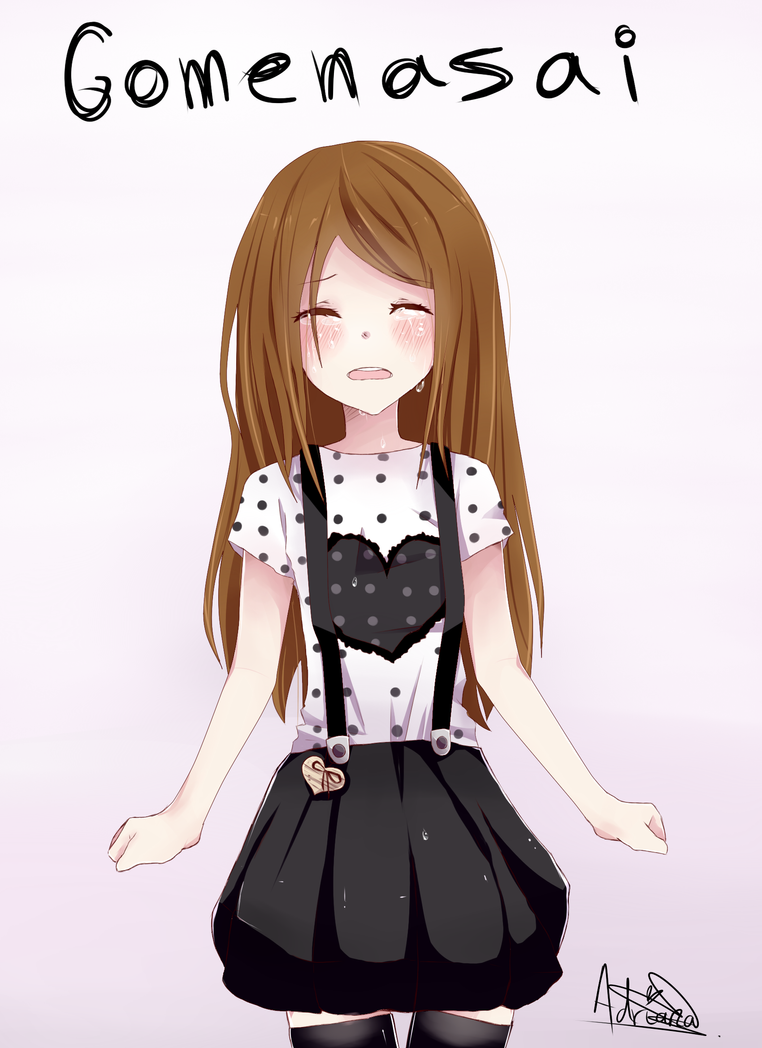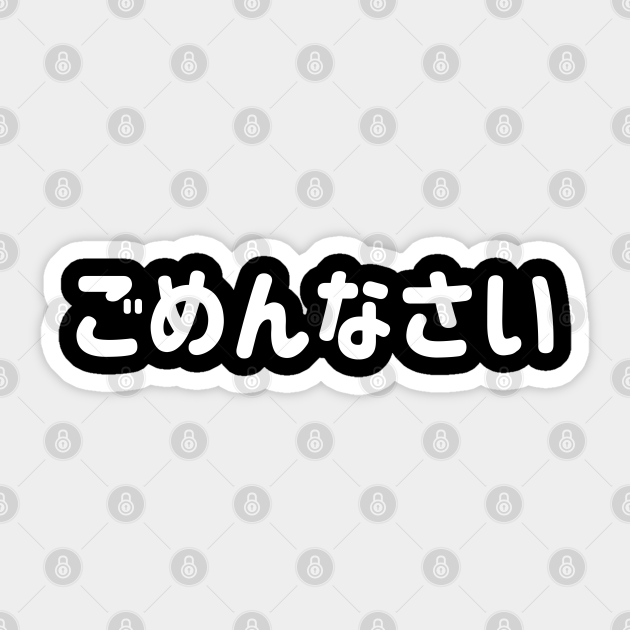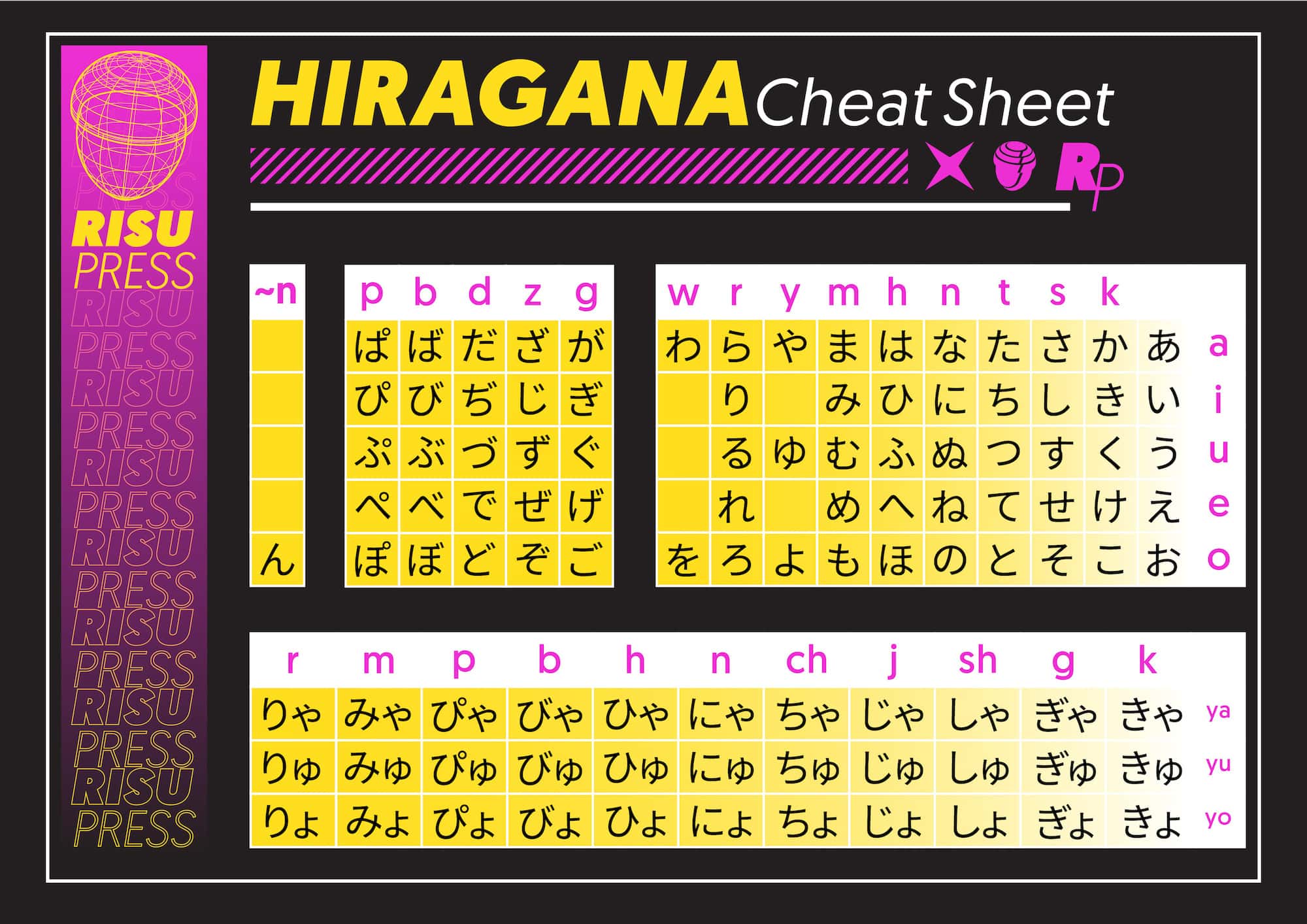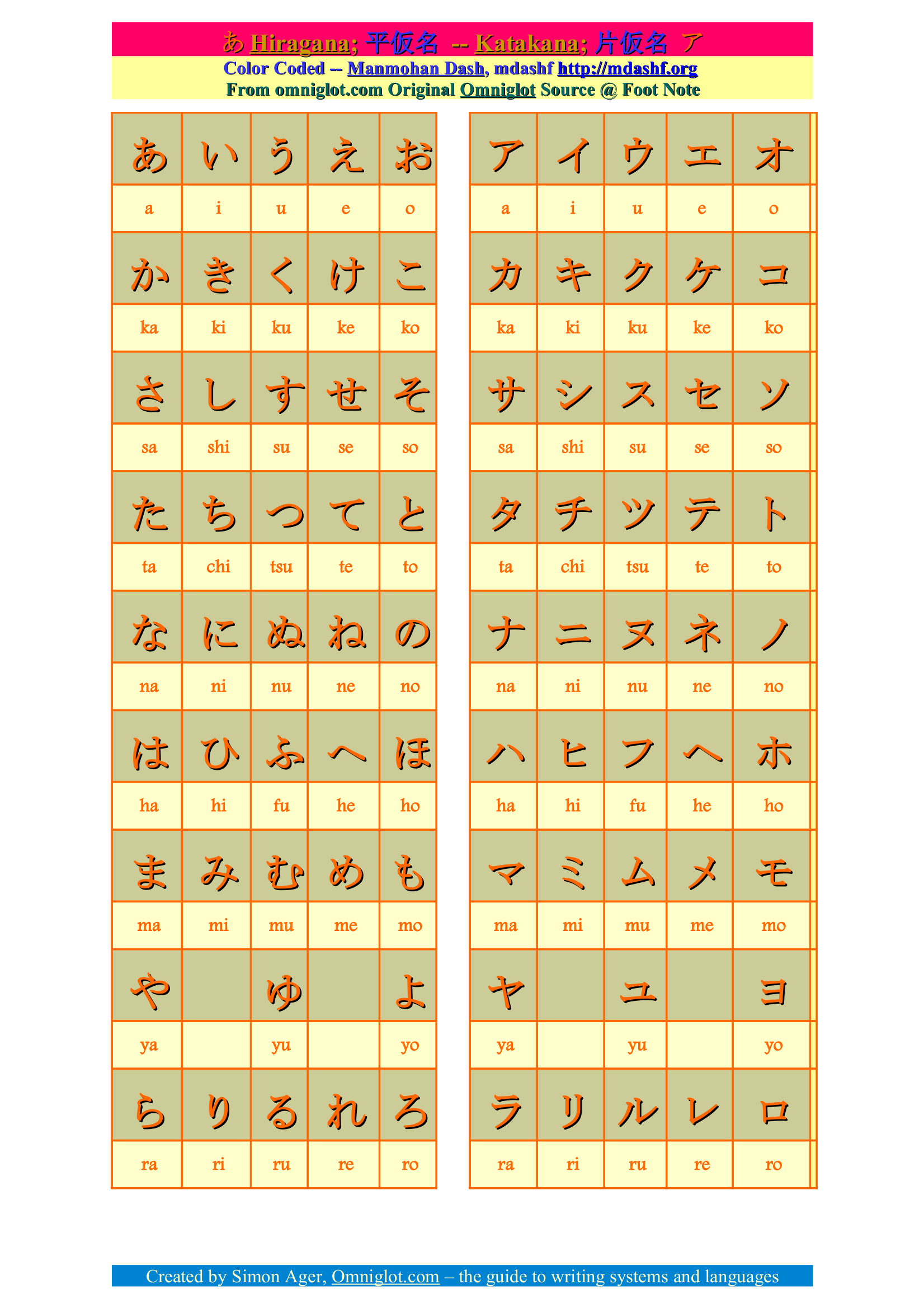
Gomen nasai "ごめんなさい" (I am sorry) in Japanese Hiragana Black ごめんなさい
Gomenasai (ごめんなさい) So Gomenasai, also spelled Gomennasai, is used to say Gomen or "Sorry" politely. Children often use this phrase when they have behaved badly. For example, 窓を割って ごめんなさい (Pronunciation) translates to English as " I'm sorry for breaking the window". Here, the kid is asking for forgiveness.

Gomenasai An Insight into a Japanese Apology YABAI The Modern
ごめんなさい ( gomen nasai) is the polite way to say "I'm sorry," but you can make it more casual, too. Switching it to ごめん ( gomen, masculine) or ごめんね ( gomen ne, feminine) makes it more casual and lighthearted for minor issues.

GOMENASAI by CatHeart on DeviantArt
ごめなさい Converted Katakana ゴメナサイ Rōmaji to Kana Converter This Romaji To Kana converter converts from Romaji to Hiragana and Romaji to Katakana. You can also translate the converted Kana to English thanks to Google translate engine.

Japanese Alphabet Hiragana Chart
ほんとうに ごめんね。 ) - I am really sorry. "Really" is "honto ni " in Japanese. By adding this word, you sound like you mean more. Suggoku gomen ne. (凄く、ごめんね。 すごく ごめんね。 ) - I am truly sorry. This expression is rather between kids or close friends of yours. Moushi wakenai. (申し訳ない、もうしわけない。 ) - I feel terrible. This expression is mainly used among adults.
Gomen nasai "ごめんなさい" (I am sorry) in Japanese Hiragana White ごめんなさい
5 Answers Sorted by: 61 On a basic level, すみません is to apologize for something that you have a "right" to do, such as when passing through a crowd or getting a waiter's attention at a restaurant. ごめんなさい, on the other hand, is for when you have done something inappropriate.

Gomen nasai "ごめんなさい" (I am sorry) in Japanese Hiragana White ごめんなさい
When somebody says "Gomen", it usually means "Sorry". The Japanese use the words as follows: "Gome-n(ごめーん)" stretching the sound of "me", or "Gomenne-(ごめんねー)" adding "ne(ね)" at the end. Also, "Gomenna-(ごめんなー)" or "Gomenyo-(ごめんよー)" When "gomen" becomes a little polite, you can say, "Gomen-nasai(ごめんなさい)". If you want to be more polite, it becomes,

Gomen nasai "ごめんなさい" (I am sorry) in Japanese Hiragana White ごめんなさい
In Japanese, there is a rule for writing the hiragana for wa(わ) and ha(は). When wa is used as a particle, it is written in hiragana as ha. (A particle, joshi, is a word that shows the relationship of a word, phrase, or clause to the rest of the sentence.) In current Japanese dialogue, Konnichiwa or Konbanwa are fixed greetings.

Let's Learn Japanese Introduction to Hiragana and Katakana
It is the standard phrase for sorry in Japanese that can be used in almost any situation. Some shorter, more casual forms are gomen (ごめん), which is more masculine, and gomen ne (ごめんね) which sounds more feminine. To add more sincerity, you can attach hontou ni (本当に / ほんとうに) before gomen nasai.

Gomenasai Hiragana Quotes top 11 famous quotes about Gomenasai Hiragana
Updated on May 24, 2018 Both "Gomennasai" and "Sumimasen" are used when you have made a mistake or inconvenienced someone. "Sumimasen" is also used when expressing a feeling of gratitude, but "Gomennasai" cannot be used in such situations.

CrunchyNihongo on Instagram “Sumimasen Vs Gomenasai Different way to
The word gomennasai is considered the dictionary form that means "I'm sorry," and can be used as a formal apology . However, the shortened word, gomen (ごめん), is also heard frequently in daily life. Children and young people use this abbreviation as a colloquial way to ask for forgiveness.

World’s Best Hiragana and Katakana Charts Risu Press
"すみません! ありがとうございます。 " Sumimasen! Arigatou gozaimasu. This statement comes of confusing for you — and probably a lot of us who are not familiar with Japanese culture. The man isn't doing anything blatantly wrong, so why did he say sumimasen (the most basic form of apology in Japanese) first and arigatougozaimasu (thank you) the second?

Gomenasai Hiragana Quotes top 11 famous quotes about Gomenasai Hiragana
【 御免なさい 】 [interjection] sorry; I'm sorry; my apologies; excuse me; pardon me; I beg your pardon Alternative spelling ご免なさい (This term, ごめんなさい, is the hiragana spelling of the above term.) Categories: Japanese interjections Japanese lemmas Japanese hiragana This page was last edited on 30 December 2023, at 03:51.

hirakataganapage1 M Dash Foundation C Cube Learning
Hiroshima Hokkaido Okinawa Features on discovering modern Japan and Japanese culture, including travel tips, things to do, and personality quizzes.

Gomen nasai "ごめんなさい" (I am sorry) in Japanese Hiragana White ごめんなさい
ごめんなさい » ご 免 なさい [ ご めん 免 · な · さ · い] » Root Words: 御 免 + なさい [ ご 御 · めん 免 + なさい] English Meaning (s) for 御免なさい expression I'm sorry; my apologies; excuse me; pardon me Add to Meanings for each kanji in 御免なさい Stroke Order Diagrams for 御免なさい Kanji Details » Add to Kanji Details » Add to Add to Add to Add to Sample Sentences for 御免なさい

Gomenasaitejina Senpai Rpg
Wakarimashita (分かりました / わかりました) is one of the best ways to say okay in Japanese. It means 'I understand', and is the polite past form of wakaru (分かる / わかる) a verb that means 'to understand'. Use this when speaking to somebody who you must show respect to or to strangers. Meanwhile, the short past form.

Hiragana dan Katakana
It shows a stronger feeling than "Sumimasen (すみません)". If you are apologizing that something has been done, "Moushiwake arimasen deshita (申し訳ありませんでした)" can be used. Like "Sumimasen (すみません)", "Moushiwake arimasen (申し訳ありません)" is also used to express gratitude. Shitsurei shimashita.